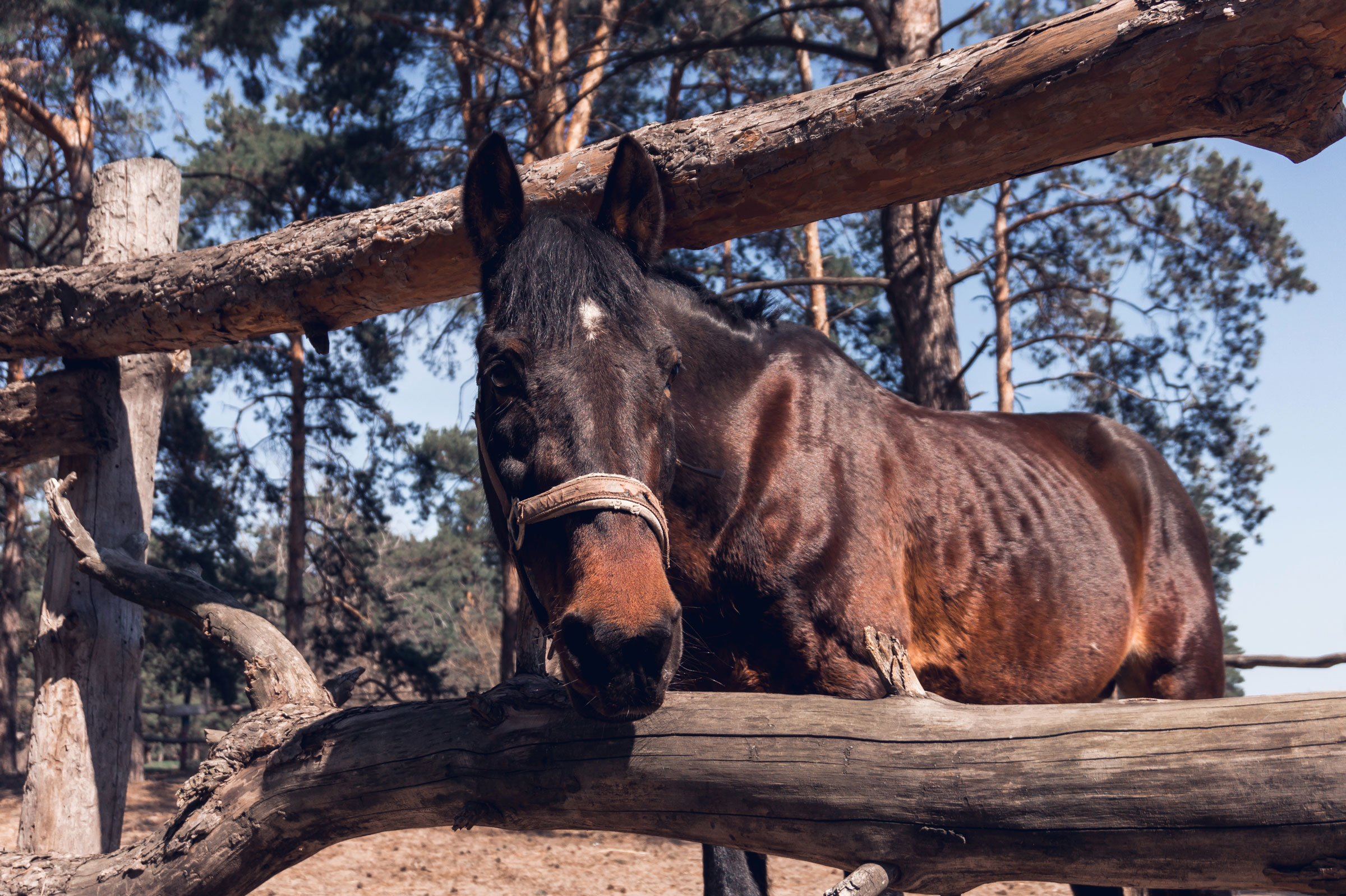
What causes weight loss in older horses? Nutrient absorption might decline as horses age, and old age dentition adversely affects intake and digestion. Another important point to consider is that a horse in pain is stressed sufficiently that weight loss might be an issue. Old horses have musculoskeletal ailments such as osteoarthritis, so consult with your veterinarian to help your horse be as comfortable as possible.
These old age considerations create challenges for a horse owner to keep his or her horse in good body condition. For starters, provide the thin horse with its own area for eating so there is no competition with other horses and so the older horse has time to eat at its own pace.
Forage for Putting Weight on Older Horses
At least 1% of the daily ration should be in the form of forage, such as hay or pasture for digestive health. This is true for any age horse. For horses with bad teeth, concentrate supplements might be necessary, especially in the form of a mash. Soaked hay cubes are also more easily consumed by horses with missing or painful teeth.
An owner might be inclined to start pushing more grain (corn, oats, barley, sweet feed) to the old horse in an attempt to provide added calories. But, this can cause a number of unintended consequences, including gastric ulcers, colic or laminitis. There are better options for putting weight on an older horse.
Senior Horse Feeds
Commercial complete feeds are available that account for caloric needs of geriatric horses—these are referred to as “senior” feeds. They are fiber-based, often with alfalfa, but contain highly palatable, chewable and digestible materials along with energy sources of fat, and vitamins and minerals. Caution must be taken to avoid feeding too much of this rich supplement—excess intake has been known to cause laminitis, especially in horses with insulin dysregulation. It helps to split the daily ration of senior feed into three or four feedings a day.
Fat for Putting Weight on Older Horses
A very safe energy source that provides calories is fat—either as vegetable oil or contained in stabilized rice bran products. As much as 8-12 percent of the concentrate diet can be fed in the form of fat. It is safe to offer 1-2 cups of vegetable oil a day, but start out with small amounts (1/4 cup) and slowly ease into the full amount.
Oil is not as filling in the digestive tract as grain or hay, and less fat is required to supply a similar amount of calories and energy as found in grain. A cup of vegetable oil is equivalent to 1¼ pounds of corn or 1½ pounds of sweet feed, making it a safe substitute for some of the concentrate supplement. This allows a horse to eat more hay, making the ration safer for intestinal health.
Store oil in a cool, dark place to prevent spoilage and rancidity. When feeding oil, supplement with vitamin E, which is an important anti-oxidant.
Rice bran is another energy-dense feed. A horse can safely consume one cup (about one pound) of heat-stabilized rice bran twice a day. Rice bran is 20 percent fat as compared to the 100 percent fat of oils; however, horses readily accept rice bran mixed in with grain, and it is less messy to handle, particularly in winter. One pound of rice bran is comparable to 1 1/3 pounds of oats or eight fluid ounces of vegetable oil.
Beet Pulp for Older Horses
Beet pulp is another excellent, safe source of fiber and calories. Beet pulp is digestible in the large intestine without the concerns related to carbohydrate overload that arise from grains. Beet pulp pellets swell to many times their original volume when wet, so it is important to soak it in copious water for at least 6-8 hours before feeding to prevent choke (esophageal obstruction). For example, a one-pound coffee can of dried beet pulp pellets can absorb up to five gallons of water. In the form of a mash, beet pulp is easy for a horse to eat despite compromised dentition.
To introduce your horse to beet pulp, start with a dry measure of half a cup, then soak this in ample water. Slowly increase amounts of beet pulp, offering up to two cups of dry beet pulp pellets soaked in water to volume for each feeding. Avoid using molasses-based beet pulp for horses with PPID or insulin dysregulation.
